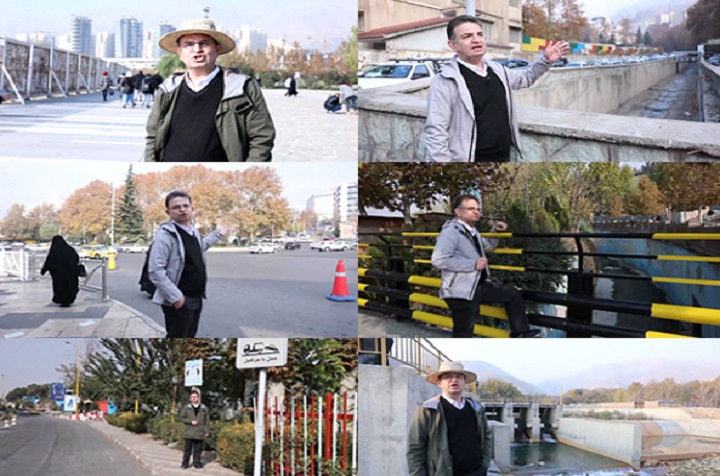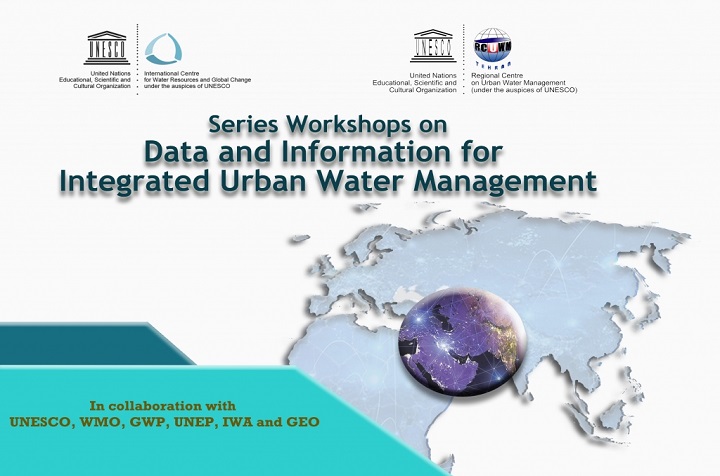Freshwater is an important resource for human health, prosperity and security. Considering the finite nature, increasing demand, and deteriorating quality of freshwater, the need to protect and manage these resources properly is crucial. Arid and semi-arid areas face the greatest pressures to deliver and manage freshwater resources globally. Water scarcity and prolonged drought period caused various negative impacts in arid and semi-arid areas including overexploitation of groundwater and depletion of water table in aquifers.
Droughts remain a widely underestimated natural hazard because they develop very gradually, covering large areas, often going unnoticed elsewhere in the world until they trigger a famine or put huge pressure on natural resources such as groundwater. Droughts can cause crop failures costing billions, severe economic losses by restricting industries on water. Current climate change projections suggest an increase in frequency, intensity and durations of droughts in some regions which impact various sectors such as food production, water supply, energy and health. The Intergovernmental Panel on Climate Change (IPCC) expects heat waves and droughts to increase in many regions of the world over the coming decades, in the course of which droughts will become one of the most destructive natural catastrophes.
Groundwater is the largest store of freshwater; over 95% of our usable freshwater resources are stored in aquifers as groundwater. In many areas for most of the year, in particular in drought period, it is the only locally available source for rural as well as urban water supply. Unless protected, groundwater quality deteriorates from saline intrusion, pollution from agricultural and urban activities, and uncontrolled wastewater disposal, as well as when older waters are accessed.
Many Asian countries depend on groundwater for sustenance and their economic activities depend highly on this resource. The rapid industrialization and urbanization taking place in Asia, however, has put severe stress on groundwater resources in many Asian countries causing large depletion of the groundwater tables, especially in arid and semi-arid countries of Asia. Problems such as decreasing water tables, reduced well yields, land subsidence, and salinity intrusion that have emerged from overexploitation of groundwater are hindering development and introducing socioeconomic losses. Aquifer contamination with various types of pollutants is also a serious concern that has led to nitrate concentration in many parts of Asia. These problems are either irreversible in nature or require extended periods to recover. Appropriate policy measures are urgently required to cope with the emerging problems and to manage groundwater in a sustainable manner while taking full benefit of it for the development of Asia.
In the host country, Iran, droughts and overexploitation of groundwater are come together and have already created problems in most of the country’s principal aquifers. Exacerbated by recurrent spells of droughts, large parts of Iran are facing extreme water shortage which is growingly being considered as an issue of human security. Groundwater levels are dropping at an alarming rate, since the slow-filling aquifers have not been able to keep up with even the existing water users and subscribers.
Overall Objectives:
On the request of the Chair of Iran National IHP Committee, UNESCO Tehran Cluster Office in close consultation with the IHP secretariat and in partnership with the Regional Center on Urban Water Management (RCUWM-Tehran) under the auspices of UNESCO and the International Drought Initiative (IDI)[1], has taken the initiative to hold a three days high-level expert meeting with focus on the Asian countries to discuss and share regional experiences on “Advances in Groundwater Management and also New Tools and Strategy for Coping with Droughts”. This high-level meeting is a contribution to the UNESCO-IHP VIII phase (2014-2021)[2] which focuses on achieving water security in response to local, regional and global challenges by building competences and developing institutional and human capacities for water security and sustainability. Using the opportunity of this meeting and to develop synergies between the two programmes of UNESCO, the first International Drought Initiative (IDI) expert group meeting will also be held to discuss possible contributions and joint initiatives to help to mitigate the effects of droughts and to identify measures in order to promote IDI activities.
6th Asian G-WADI Meeting:
The experience of arid and semi-arid countries dealing with water scarcity and drought related challenges will be shared among the Asian G-WADI countries, and particularly with Iran, through the 6th Asian G-WADI[3] Network Meeting. The meeting will also bring together experience from the region as well as UNESCO projects on groundwater management, especially in the MENA region, and also benefit from the experience of the IDI international expert group who are present in Iran during the dates of the meeting. Experts from the International Groundwater Resources Assessment Centre (IGRAC) will be invited to moderate sessions and provide expert advice on the specific case of Iran. The members of the Asian G-WADI network will also meet alongside the high level expert meeting.
1st IDI Expert Group Meeting:
The first IDI Expert Group meeting will be expected to provide expert knowledge and advice, help in networking and institutional support for implementing IDI’s activities. Individual members of the Group may also be invited to contribute to the development of IDI related projects, according to their thematic areas of expertise. IDI Expert Group Meeting will contribute to both its scientific agenda of IDI as well as fostering links with other groups working in similar fields. IDI Expert group members will share experiences and best practices to deal with droughts for a better management of water resources in line with sustainable development approaches and for water, energy and food security.




